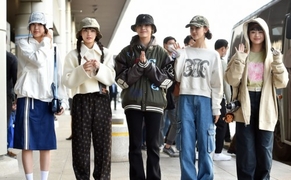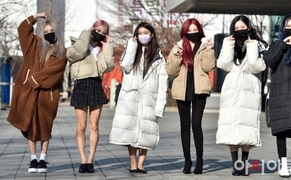 |
| Gyeonggi Governor Lee Jae-myung leaves the National Assembly after a meeting held at the National Assembly on Oct. 13, 2021./ Photographed by Lee Byung-hwa |
AsiaToday reporter Jeong Geum-min
There are mixed opinions about the political advantages and disadvantages of Gyeonggi Governor Lee Jae-myung’s attendance of the upcoming parliamentary audit. This is because it is unusual for a presidential candidate of the ruling party to attend a parliamentary audit, and the Daejang-dong land development scandal is in fact sucking up every issue like a black hole. The upcoming audit is expected to have a significant impact on Gov. Lee on his way for the 20th presidential election.
According to the National Assembly on Sunday, Gov. Lee will attend the National Assembly’s audit of the provincial government set for Oct. 18 and Oct. 20. Traditionally, parliamentary audits focus on uncovering the truth and falsity of government administration for the past year. But with the presidential election just five months away, the main opposition People Power Party (PPP) is expected to use the audit sessions to question Lee over the snowballing land development scandal.
Gov. Lee’s side expects that the parliamentary audits will serve as an opportunity to make good out of evil. Through the audit, Lee wants to solidify his position as a powerful presidential candidate of the ruling Democratic Party (DP) while changing the frame related to the huge severance pay of PPP lawmaker Kwak Sang-do’s son.
DP leader Song Young-gil made a guest appearance on MBN’s “Intensive Analysis of Jung Woon-gap” and said, “Gov. Lee told me that he doesn’t want to miss the opportunity to explain to the public about the controversy as itself in an unedited live broadcast.” Song stressed that he will make it a chance to prove Lee’s administrative ability as well as his righteousness.
Looking at the number of parliamentary seats, the DP has an overwhelming number of seats. For instance, the Gyeonggi State Audit of the Public Administration and Security Committee will be attended by 13 DP lawmakers, 8 PPP lawmakers and one from the Justice Party. The audit of the Land Infrastructure and Transport Committee will be participated by 29 lawmakers, with 18 from the ruling party.
If Gov. Lee reverses public opinion in the upcoming audits, he is expected to provide the ruling party the driving force to form an election committee.
“It is better for Gov. Lee to attend the state audit,” said Yoon Tae-gon, political analysis chief for Moa Agenda Strategy, in a phone interview with AsiaToday. “If he openly refute the allegations of preferential treatment for Daejang-dong development project and then launches the Party Election Committee sequentially, he will be able to enjoy the convention effect that he was not able to enjoy during the primary,” he said.
However, many are concerned that his position has changed to the presidential candidate of the ruling party from the head of a local government. Initially, suspicions about the Daejang-dong project were raised when it was revealed that the development profits generated from the land development project, which was approved by Gov. Lee during his tenure as Seongnam Mayor, went to private asset management company Hwacheon Daeyu, owned by Kim Man-bae.
For this reason, many inside and outside the party raise the possibility of Gov. Lee getting caught up in a political strife. Besides, if the governor gives a fake answer during the audit, he may be punished for perjury under the National Assembly Testimony Act.
PPP spokesperson Kang Min-gook said, “Gov. Lee signed at least 10 public documents related to the Daejang-dong case while serving as Seongnam mayor. In the end, the focus of the investigation into the Daejang-dong scandal will be focused on him.”
#Lee Jae-myung #audit #Daejang-dong
Copyright by Asiatoday
Most Read
-
1
-
2
-
3
-
4
-
5
-
6
-
7





















